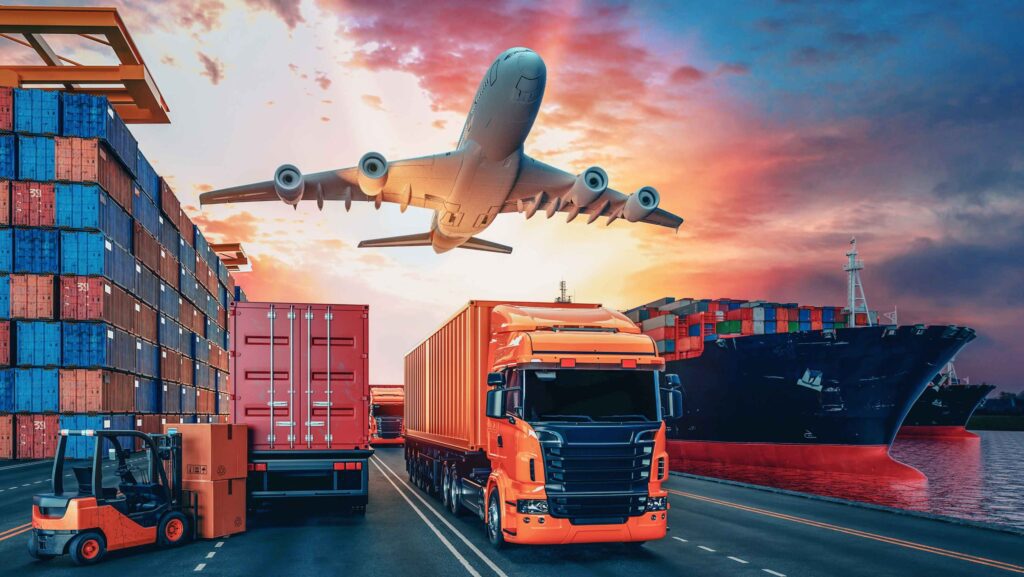Logistics and its Scope in India and Abroad

Logistics and Supply Chain Management
One of the most crucial basic industries for any economic progress is logistics. Today, every firm is at the forefront because of its effective and efficient supply chain network. It involves the management of product flow from point of origin to point of consumption.
Material handling, warehousing, packing, transportation, shipping security, inventory, management, supply chain management, procurement, and customs service are all interwoven operations in this business. Today’s age is fully reliant on the internet, preferring to have everything delivered to their door in the shortest amount of time possible, which is now achievable thanks to Logistics Operations.
The scope of logistics is broad and encompasses various activities involved in the movement and management of goods, services, and information from the point of origin to the point of consumption.
Here are some key aspects of the scope of logistics:
Transportation: Logistics involves the planning, coordination, and execution of transportation modes such as road, rail, air, sea, and multimodal transportation to ensure the efficient movement of goods. Warehousing and Distribution: Logistics includes the management of warehouses and distribution centers where goods are stored, sorted, and distributed to their final destinations. This involves inventory management, order fulfillment, and optimizing warehouse operations
Inventory Management: Logistics encompasses the processes and systems for managing inventory levels, ensuring the right products are available at the right time and place to meet customer demand while minimizing carrying costs and stock outs.
Supply Chain Management: Logistics plays a critical role in supply chain management by coordinating the flow of materials, information, and finances across suppliers, manufacturers, distributors, retailers, and customers to deliver value to end-users efficiently and effectively.
Procurement and Sourcing: Logistics involves the procurement and sourcing of materials, components, and services required for production and operations, ensuring timely delivery and cost-effectiveness. Packaging and Handling: Logistics includes the packaging, handling, and labeling of goods to protect them during transportation and storage, minimize damage, and ensure compliance with regulatory requirements.
Reverse Logistics: Logistics also covers reverse logistics processes, including product returns, recycling, remanufacturing, and disposal, to manage the flow of goods and materials back through the supply chain
Information Management: Logistics relies on information systems and technologies for real-time tracking and visibility of goods in transit, as well as for data analytics to optimize operations, improve decision-making, and enhance customer service.
Risk Management: Logistics involves identifying, assessing, and mitigating risks associated with supply chain disruptions, including natural disasters, geopolitical issues, transportation delays, and supplier failures.
Customer Service: Logistics plays a crucial role in customer service by ensuring on-time delivery, accurate order fulfillment, and responsive communication with customers throughout the supply chain. Overall, the scope of logistics is interdisciplinary, covering a wide range of activities and functions that are essential for the efficient and effective management of supply chains and the movement of goods and services in both domestic and global markets.
Today, there are numerous institutions and universities offering various types of courses on the same topic. ILAM, India’s top and most awarded logistics and supply chain management university, strives to train talented individuals in “New Age Careers.” However, outsourcing logistics tasks to skilled logistics service providers (LSP), also known as third-party logistics (3PL), allows businesses to receive
efficient and tailored logistical support while focusing on core capabilities. Today, there are numerous huge multi-national LSPs that provide global supply chain solutions.
LSPs provide value-added services such as customs clearance, freight forwarding, import/export management, inventory management, assembly/installation, packaging and labelling, distribution, after-sales support, reverse logistics, and so on in addition to core logistics activities such as transportation and warehousing.
To decrease costs while meeting service needs, logistics organizations are transitioning from a traditional setup to IT-integrated operations. The expansion of the Indian BBA Logistic in the Delhi sector is dependent on both hard and soft infrastructure, such as education, training, and policy framework.
To sustain India’s fast-growing economy, the logistics industry is critical. Furthermore, organizations with manufacturing and distribution operations require trained logistics professionals. To summaries, practically every size and style of the firm requires dedicated, well-dressed employees, to become their future supply chain executives!